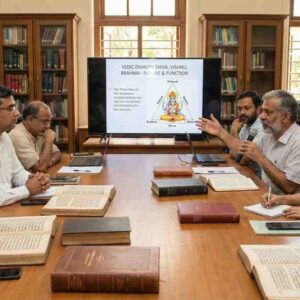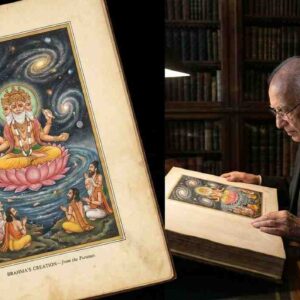Rediscovering Ancient Wisdom in Today’s World
In a rapidly modernizing world, ancient practices rooted in India’s spiritual and cultural traditions are experiencing a revival. Once relegated to the realm of ritualistic observances, these practices are now being recognized for their practical benefits in enhancing physical health, mental well-being, and societal harmony. From yoga and Ayurveda to meditation and Vedic chanting, India’s ancient wisdom is finding relevance in contemporary lifestyles worldwide.
The Science Behind Ancient Practices
What were once seen as purely religious or spiritual rituals are now backed by scientific studies. Yoga, for instance, is not just a series of postures but a holistic system for physical, mental, and spiritual well-being. The World Health Organization (WHO) reported in 2023 that yoga can significantly reduce symptoms of anxiety and depression, while improving overall cardiovascular health.
Similarly, Ayurveda, with its emphasis on natural healing and prevention, has gained global recognition. According to a report by the Ministry of AYUSH, the Indian Ayurveda market is projected to grow to ₹1.5 trillion by 2030, driven by increasing global interest in herbal and natural remedies. Research at institutions like the All India Institute of Ayurveda (AIIA) has shown the efficacy of Ayurvedic treatments in managing chronic diseases, such as diabetes and arthritis.
Rituals as Tools for Mental Well-being
Ancient rituals, often dismissed as mere superstitions, are increasingly understood as tools for mindfulness and community bonding. Practices such as lighting a lamp (deepam) or performing aarti are seen to have calming effects on the mind, akin to mindfulness exercises. A 2023 study by the Indian Institute of Science revealed that repetitive chanting of mantras can reduce stress levels and improve focus, suggesting a neuropsychological basis for their enduring appeal.
Even fasting rituals, like those observed during Navratri or Ekadashi, are now linked with intermittent fasting benefits, including improved metabolism and cellular repair, according to a report in theJournal of Nutritional Science.
Bridging the Gap Between Tradition and Modernity
The revival of ancient practices is not without challenges. Critics often argue that their modern interpretations risk losing the depth of the original practices. For example, yoga, in its commercialized form, is sometimes reduced to a fitness trend, stripping it of its spiritual dimensions.
To address these concerns, efforts are being made to integrate ancient wisdom with modern science. The Central Council for Research in Ayurvedic Sciences (CCRAS) is working on clinical trials to validate Ayurvedic formulations scientifically. Similarly, organizations like the Indian Yoga Association are advocating for yoga’s holistic approach, emphasizing its ethical and spiritual components alongside physical benefits.
A Global Impact
India’s cultural exports, rooted in ancient traditions, are reshaping global perceptions of well-being. The International Day of Yoga, celebrated in over 190 countries, is a testament to the universal appeal of these practices. Prime Minister Narendra Modi, during the 2023 UN General Assembly, highlighted India’s commitment to promoting holistic health, emphasizing the role of yoga and Ayurveda in achieving sustainable development goals.
A Return to Roots
As modern life becomes increasingly stressful and disconnected, ancient practices offer a pathway to holistic living. They remind us that rituals are not just symbolic acts but tools for enhancing individual and collective well-being. By rediscovering the deeper meaning behind these practices, India and the world stand to benefit from their timeless wisdom.
Ancient traditions, far from being outdated, continue to serve as a bridge between rituals and reality, offering solutions to the challenges of modern life while grounding us in the values of our past.













